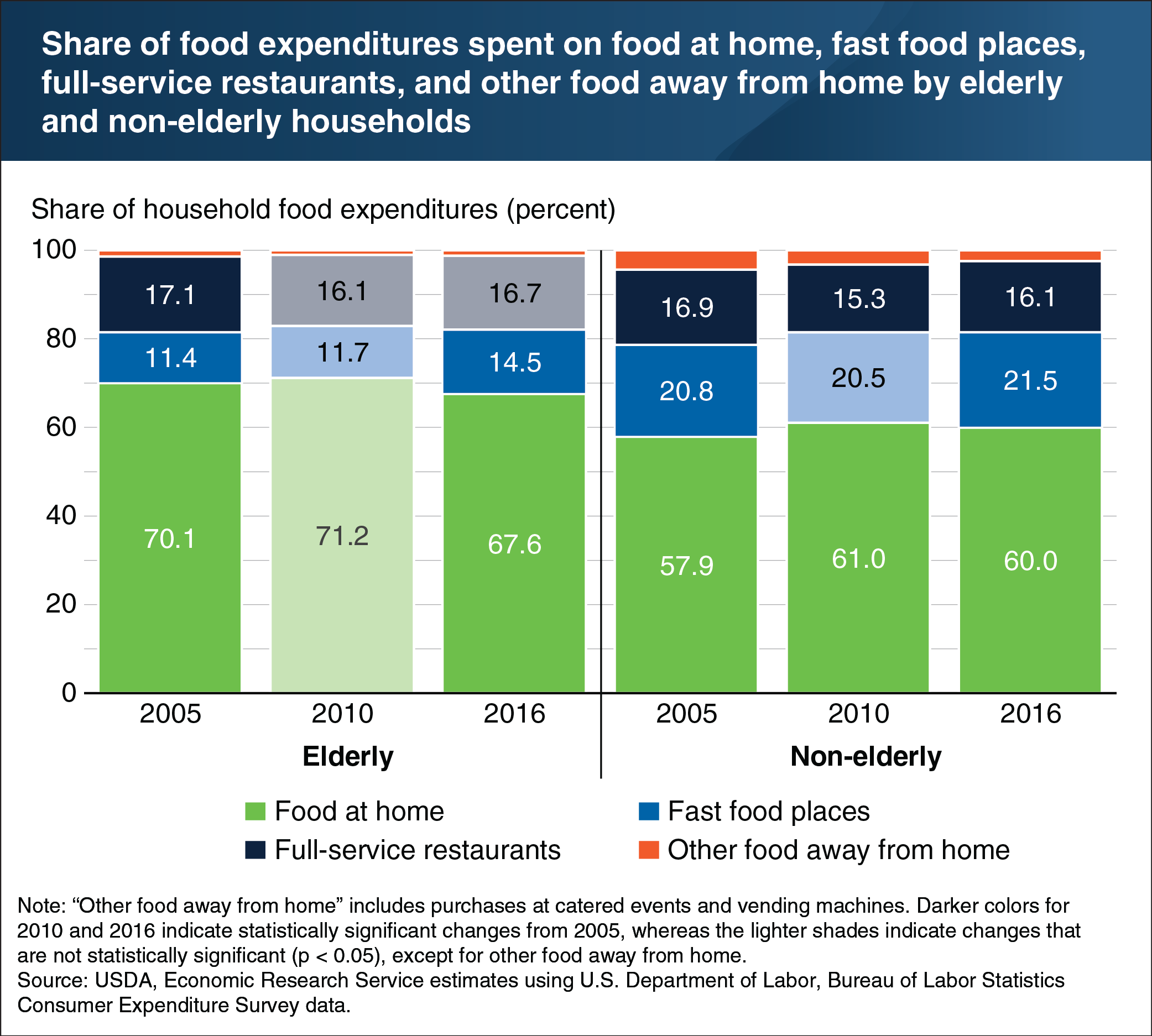The Great Recession affected food spending patterns of elderly households less than those of non-elderly households
- by Clare Cho
- 11/27/2018

Elderly households (those with at least one individual age 65 or older) tend to be less affected by economic downturns, possibly because they have more fixed incomes from Social Security or pensions that do not depend on employment. Using data from the Bureau of Labor Statistics’ Consumer Expenditure Survey, ERS researchers found that from 2005 to 2010, elderly households did not significantly change their share of food spending allocated to grocery stores and other food-at-home retailers or their share allocated to eating-out options. By 2016, elderly households had reduced their share of food-at-home expenditures by about 3 percentage points and increased their share of spending at fast-food places, although the fast-food share remained below that of non-elderly households. In contrast to elderly households, non-elderly households spent less of their food budgets at full-service restaurants and more on food at home in 2010 and 2016 than in 2005. This chart appears in “Food Spending of Middle-Income Households Hardest Hit by the Great Recession” from ERS’s Amber Waves magazine, September 2018.

